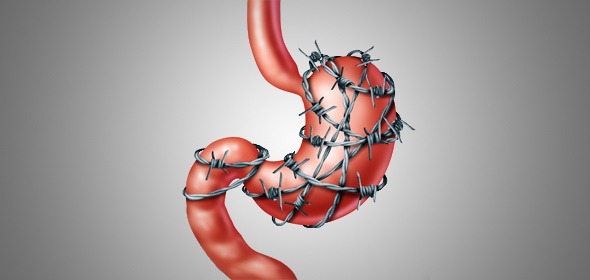
Irritable bowel syndrome (IBS) is a chronic condition that affects up to 23% of the population, particularly women.
The "problem disorder"
IBS can, with justification, be called a "problem disorder" because it disrupts the lives of so many individuals. The symptoms can range from mild flatulence to severe abdominal pain and excessive bloating to the extent that patients are regarded as "pregnant" by their family and friends. There is no specific test available that can pinpoint what causes IBS.
Added to these complicating features, IBS also tends to manifest in three different types:
- IBS with constipation.
- IBS with diarrhoea.
- IBS with mixed symptoms.
Possible causes
- Hypersensitivity of the digestive tract.
- Low-grade inflammation of the mucous membranes lining the gut.
- Changes in the normal tempo of bowel movements or gut motility.
- Preceding infections of the gastrointestinal tract (GIT) and/or treatment with antibiotics.
- Inability to handle gas (wind) in the GIT.
- Abnormal fermentation of foods in the digestive tract.
- Abnormal gut muscle reactions after eating.
In addition, the following trigger factors are well known:
- Stress, anxiety, a hectic lifestyle: all the factors modern humans have to contend with all the time.
Treatment
The treatment of IBS must be based on an individualised programme. Each IBS patient has a unique set of circumstances that may predispose him or her to develop IBS.
From an evaluation of 30 studies, the Association of Dietetics in South Africa reported that dietary management of IBS should include one or more of the following components, depending on the individual's symptoms and response:
- Initial clinical assessment of the patient’s specific symptoms and reactions to foods, particularly lactose, and dietary fibre or so-called non-starch polysaccharides (NSP).
- Advanced interventions such as elimination diets to identify which foods a specific patient is reacting to (see below).
- Provision of a diet to the specific patient that avoids the offending foods, but is still fully balanced so that by eliminating foods such as milk and dairy, the patient does not develop deficiencies (i.e. calcium deficiency leading to osteoporosis).
Offending foods
- Artichokes, asparagus, beetroot, chicory, garlic (when consumed in large quantities), leek, onion, wheat and rye.
- Legumes such as dry cooked or canned beans, baked beans, lentils and chickpeas.
- Lactose in milk and all foods that contain milk such as ice cream, dairy desserts, condensed and evaporated milk, milk powder, yoghurt, soft cheese (e.g. ricotta, cottage cheese, cream cheese, mascarpone, etc).
- Carbohydrates or sugars that contain only one sugar molecule such as fructose and glucose.
- Fructose which is found in honey, apples, mango, pears, watermelon, fruit juice, diabetic so-called "sugar-free" products, high-fructose corn syrup, and any foods or confectionary made with fructose.
- Apples, apricots, avocado, cherries, litchis, nectarines, pears, plums, prunes and mushrooms.
- Sugar alcohols which are used as dietary sweeteners for diabetic and slimming products, include sorbitol, mannitol, xylitol, maltitol and isomalt.
These poorly absorbed carbohydrates tend to cause abnormal fermentation in the lower part of the small intestine and the colon, which produces large quantities of gas, that in turn cause IBS symptoms, such as abdominal pain, bloating, distention, diarrhoea and constipation alternating with diarrhoea.





 Publications
Publications
 Partners
Partners














